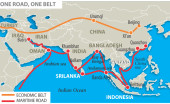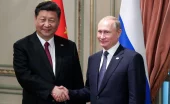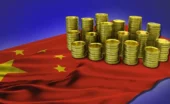Johannah Bernstein post: "eternally proud of my father’s extraordinary aeronautical engineering. legacy. here is a photo of the Canadair Water…
China: government and governance /2
Written by Diana Thebaud Nicholson // August 9, 2016 // China // Comments Off on China: government and governance /2
China’s Year of Tumult Puts Xi’s Governance Under the Microscope
Looking out over Beijing’s Tiananmen Square as tanks rumbled by and fighter jets roared across a brilliant blue sky, Chinese President Xi Jinping looked like power personified during a Sept. 3 military parade.
Yet as thousands of soldiers saluted Xi, China was grappling with a series of crises. Policy makers scrambled to counter the effects of capital outflows after a surprise central bank decision that devalued the yuan almost 2 percent. Several executives from brokerages faced scrutiny over a $5 trillion stock-market wipeout. And crews were still clearing toxic rubble from explosions in the port of Tianjin that killed more than 170 people and laid bare the risks of decades of lax oversight that accompanied breakneck economic growth.Those tumultuous weeks encapsulated the most challenging year Xi has faced since coming to power in 2012. While the Communist Party leader saw victories such as the yuan’s designation as a global reserve currency, his handling of the market crash and slowing output raised questions about whether the government is committed to the tough choices necessary to guide growth lower and ease the economy’s dependence on debt.
2016 Plans
On Dec. 21, the leadership’s Central Economic Work Conference, outlining its plans for 2016, signaled it would deploy more fiscal stimulus to prop up growth. The government is seeking at least 6.5 percent annual growth in the coming years, and the statement said leaders plan to increase the deficit, raising new concerns that China still isn’t prepared to confront overall debt estimated at 280 percent of gross domestic product. Xi is expected to give a New Year speech on December 31 to highlight his past year accomplishments and set out his main goals for next year. (22 December 2015)
 One Path to Power in China Is Closed
One Path to Power in China Is Closed
(Bloomberg) A troubling development last week casts some doubt on China’s long-term stability. The story on the surface sounds innocuous, as is often the case in China’s opaque internal politics: The People’s Daily, the official Communist Party newspaper, announced a reorganization of the Communist Youth League.
But what makes this so significant to China’s future — and therefore global security — is that the league has for decades functioned as one of two incipient political parties within the Communist Party. That President Xi Jinping has essentially purged it is evidence of his gradual, mindful push to become the country’s all-powerful dictator.
Instead of sharing power across factions as his two predecessors did, Xi is consolidating power for himself. And, as the recent coup attempt in Turkey demonstrates, a slow march toward dictatorship is a leading indicator of future instability. …
Xi, who has purged numerous senior party leaders on corruption charges — many fully justified — wants to eliminate the Communist Youth League as a political base for meritocratic challengers.
That’s potentially very dangerous for China’s stability, for at least two related reasons. The first is that self-made meritocrats are dangerous sources of revolution if they are denied access to power. Xi seems pretty confident of his capacity to consolidate power instead of sharing it. But he could overplay his hand by giving the smartest and most motivated Chinese leaders reason to organize against him. Trying to curtail the Communist Youth League means that Xi sees it as a threat, at least to some degree.Second, meritocrats have contributed vastly to China’s economic success. The Communist Party has been able to implement market-driven economic reforms because it has drawn on cadres of extremely intelligent, highly effective leaders while giving them the incentive to succeed through the promise of rising within the party. As China’s economy slows, it needs more self-made, entrepreneurial, merit-oriented officials, not fewer.
23 February
China has been deploying missiles and radar in the South China Sea as part of an effort to militarily dominate East Asia, according to U.S. Admiral Harry Harris, head of the U.S. Pacific Command. Chinese Foreign Minister Wang Yi denied that there are problems with freedom of navigation and maintained that China and ASEAN countries – several of which have competing claims with China – “have the capability to maintain stability in the South China Sea.” On a different front, President Xi Jinping has announced a far-reaching media policy: Chinese Media Must Serve the Party e.g. party mouthpieces. At the same time, Mr. Xi also wants to curb the presence of foreign media companies. Last week, government agencies announced a regulation that would prevent foreign companies from publishing and distributing content online in China.
1 February
Nearly one million investors may have been fleeced in China’s latest Ponzi scheme
(Quartz) Investor fraud has become a huge problem in China, where low bank deposit rates, shaky housing prices and a weak stock market have prompted citizens to look for alternate places to put their cash. Last year, financial scams raked in more than $24 billion in China, as Quartz reported earlier.
17 January
After vote, China tells Taiwan to abandon independence ‘hallucination’
(Yahoo! news) Taiwan should abandon its “hallucinations” about pushing for independence, as any moves toward it would be a “poison”, Chinese state-run media said after a landslide victory for the island’s independence-leaning opposition.
Tsai Ing-wen and her Democratic Progressive Party (DPP) won a convincing victory in both presidential and parliamentary elections on Saturday, in what could usher in a new round of instability with China, which claims self-ruled Taiwan as its own.
Tsai pledged to maintain peace with its giant neighbor China, while China’s Taiwan Affairs Office warned it would oppose any move toward independence and that Beijing was determined to defend the country’s sovereignty.
13 January
China strengthens anti-graft efforts for clean governance
(Xinhua) — Chinese Premier Li Keqiang convened a meeting on Wednesday to underline clean governance and reinforce anti-corruption measures in the government.
The meeting was held to learn and implement the speech of Xi Jinping, Chinese president and general secretary of the Communist Party of China Central Committee, on overcoming corruption at an anti-graft session on Tuesday.
Government staff must abide by political discipline and laws and strengthen efforts to build clean governance, according to a statement released after the meeting of leading officials of the State Council, China’s cabinet.



